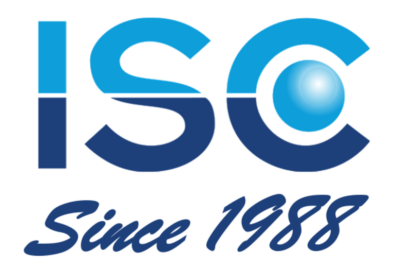Compressed Air System Considerations
Installing a Compressed Air System is a significant investment. Get it right the first time with this FAQ guide. If there is a question that we are not answering, contact us and one of our Experts will get back to you quickly.
Compressed AIR FAQ
- Compressed Air System Considerations
- What is ASME?
- How do I know which air compressor to buy?
- How large of a tank do I need?
- What size air compressor do I need for air tools?
- How often does the oil need to be changed?
- How often should the filters be cleaned or changed?
- Can I run my electric compressor on a generator?
- Will the air compressor I purchase be set at the maximum
operating pressure?
- What is ASME?
What is ASME?
ASME is an abbreviation for the American Society of Mechanical Engineers. ASME tanks have been welded and tested to meet established standards. All tanks offered by ISC Sales have been ASME rated.
How do I know which air compressor to buy?
- Determine which types of tasks or jobs you will perform with your compressed air system. Every job requires various sizes of air compressors and tank sizes.
- Determine which types of pneumatic tools you be using with your application. All tools will have different requirements of air pressure and volume (CFM) to operate properly.
- Determine if the tool load will be used intermittently or continuous in heavy duty applications. The more the compressor is used the larger the air tank and air compressor will need to be.
- Determine the electrical power that is available for use in your application.
** To save money and prevent downtime, we suggest purchasing a compressor that is capable of producing more compressed air than needed to ensure there will never be a shortage of compressed air.
How large of a tank do I need?
For smaller tools and for tools that will only require short bursts of air, a smaller tank size can be used. For larger tools or tools that will run for long periods of time, a larger tank will be required.
Still unsure? Read our blog article, “What is an Air Receiver Tank
What size air compressor do I need for air tools?
It will vary from tool to tool and from application to application. Tools will specify what psi and cfm are required for proper function.
Air tools made for general use with portable air compressors will typically need 0 to 5 cfm (cubic feet per minute) at 70 to 90 psi (pounds per square inch). Larger tools that are connected to stationary systems usually exceed 10 cfm at 100 to 120 psi.
How often does the oil need to be changed?
The oil will need to be changed in frequent intervals. Oil changes are different for each compressor type. Reciprocating compressors will need replacement about every three months, while rotary screw compressors will need a change of oil about every 7000 to 8000 hours.
As always, it is important to check the manufacturer’s recommendations for detailed instructions or contact a compressed air expert at ISC Sales for more information.
How often should the filters be cleaned or changed?
Filters should be cleaned every week, depending on the amount of dirt and build up in your facility. Cleaner applications and plants may require less frequent cleanings. Replace the filters when they are harder to clean or you notice tears or holes in the filter.
Can I run my electric compressor on a generator?
Yes, it is possible for you to run your compressor on a generator but there are problems that could arise by doing so. Generators tend to fluctuate and can provide an uneven flow of power and a compressor needs consistent power to run efficiently.
Will the air compressor I purchase be set at the maximum operating pressure?
Most units can be field adjusted to the pressure that you want. Production units from the factory are not always set at the maximum operating pressure. Never adjust the pressure above the compressor’s rating or the maximum operating pressure or problems will occur.
